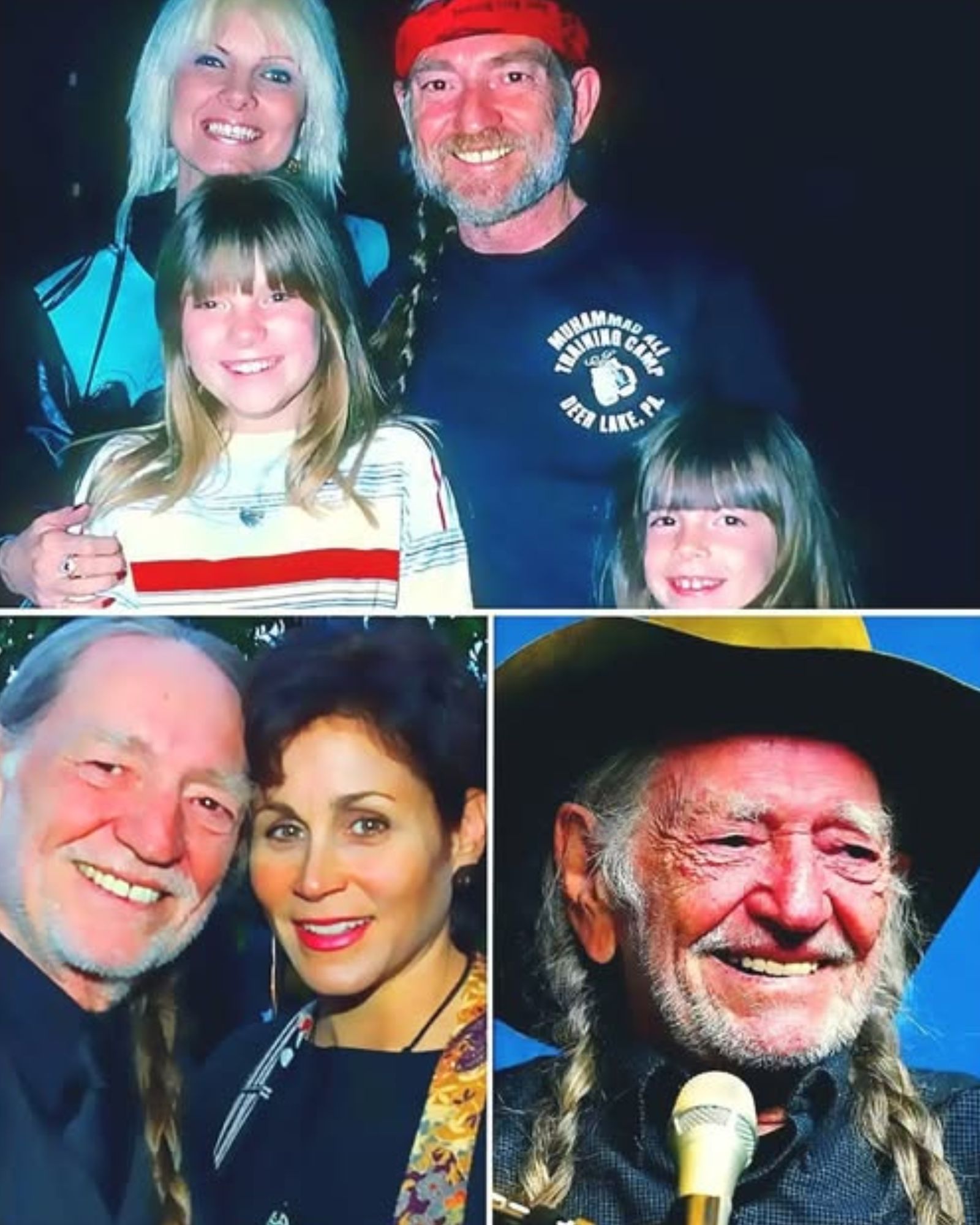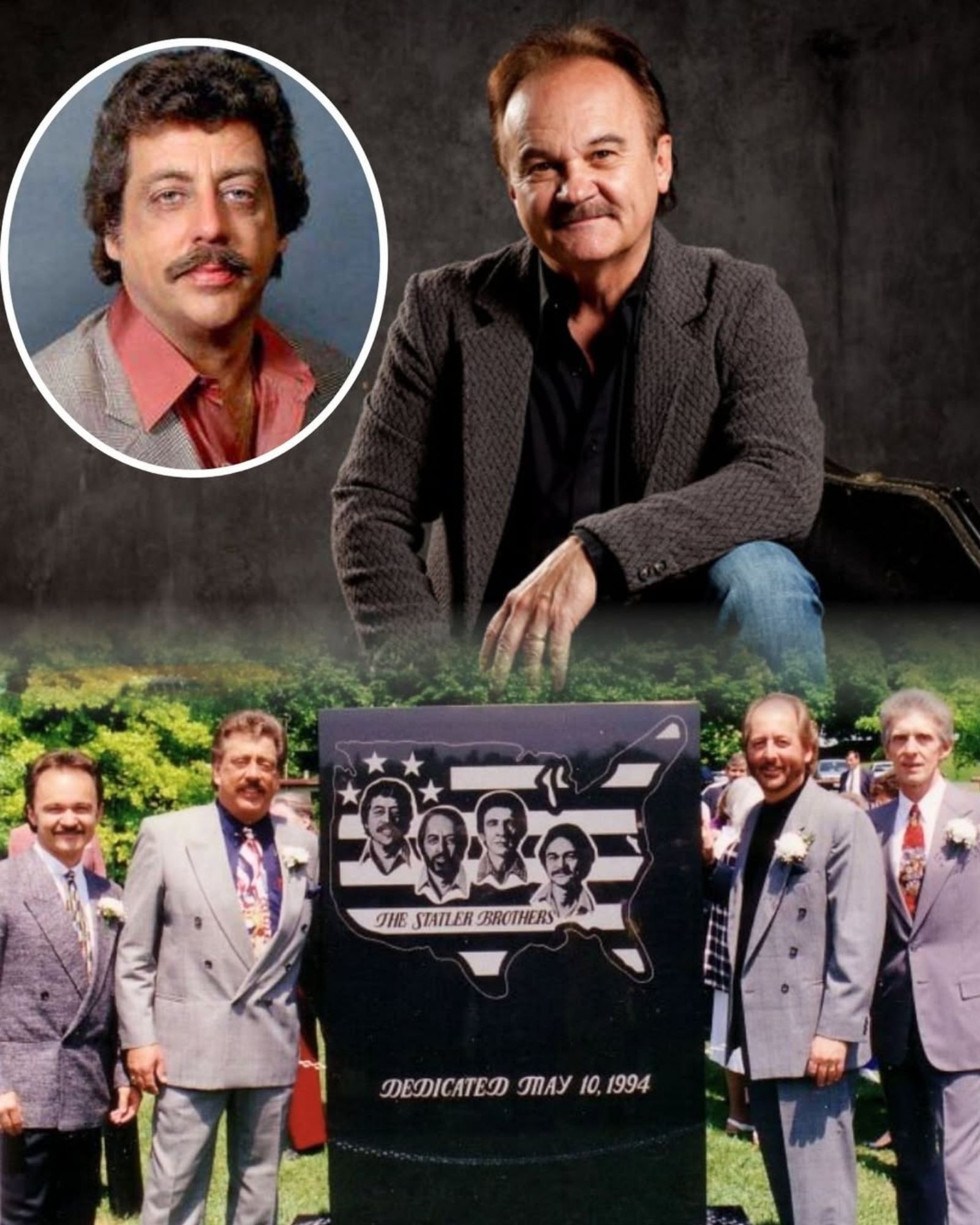Willie Nelson’s Storm-Worn Journey Through Love — And the Quiet Woman Who Finally Became Home
“SOMETIMES A MAN HAS TO LIVE THROUGH A FEW STORMS TO RECOGNIZE THE ONE WHO FEELS LIKE HOME.” Willie Nelson’s road to real love wasn’t smooth. It was messy, loud, and full of wrong turns. In the late ’50s, he was writing songs by day, selling encyclopedias at night, and walking into a house where arguments could explode without warning. Friends still talk about that night he came home to find himself tied up with jump ropes while his clothes burned in the fireplace. Then came Shirley — sweet voice, stage lights, long drives between shows. But even music couldn’t hold the cracks together. One hospital bill changed everything, and she walked out with her heart in her hands. Connie brought him comfort for a while — a softer rhythm, a steadier breath — but life on the road wore that love thin too. And then Annie arrived. Quiet, strong, never chasing the spotlight. They once got stranded in a snowstorm, huddled in the cold while she cooked beans over a tiny stove. Willie later said, “Sitting there with her… I realized I didn’t need much else.” Years passed. Illnesses, long tours, even an arrest — and she never left his side. Today, when he looks at her and says, “She knows every song, every mistake… and she still shows up,” you can hear the truth in it. Sometimes love doesn’t come easy. Sometimes it comes at the end — calm, warm, and exactly what a wild heart needs.

There’s a quiet truth people rarely talk about:
Some hearts don’t find home in their first chapter… or their second… or even their third.
For Willie Nelson, love wasn’t a clean, gentle path. It was fire, chaos, long highways, second chances — and eventually, peace.
The Wild Early Years
Back in the late 1950s, Willie was living in a tiny Fort Worth house, juggling songwriting and selling encyclopedias just to get by. His marriage to Martha Matthews was as passionate as it was explosive. Friends still whisper about the night he came home to find himself tied up with his kids’ jump ropes while Martha tossed his clothes into the fire.
It was the kind of love that burned hot… and burned out.
They divorced in 1962.
A Duet That Couldn’t Last
That same year, Shirley Collie entered the picture — a singer with a crystal voice and a heart wired for the road. They toured, they recorded, they even climbed the charts with “Willingly.”
But one hospital bill changed everything.
Shirley opened it.
The name on the mother’s line wasn’t hers.
She packed her things without saying much at all.
Connie: A Softer Kind of Love
Connie Koepke brought calm, something Willie hadn’t felt in years. She wasn’t a singer. She didn’t care about the spotlight. She cared about him.
They built a life together, raised daughters Paula and Amy, and even moved back to Abbott — the place where little Willie first learned to dream.
But being married to a man who lived on the road, chased by IRS troubles and pulled by music every waking minute… it took its toll.
Eventually, they drifted apart.
Then Came Annie — The One Who Stayed
Willie met Annie D’Angelo in 1991 on the set of Stagecoach, where he was filming with Kris Kristofferson and Johnny Cash. Annie wasn’t like anyone he’d loved before. She was calm. Funny. Quiet. And somehow strong enough to steady the storm around him.
Willie still tells the story of a tour bus breaking down in a Colorado snowstorm — no heat, no cell service, miles from help. Annie wrapped herself in a blanket, lit a tiny gas stove, and cooked beans for both of them.
“Sitting there with her,” Willie said, “I realized I didn’t need much else.”
Through illness, long tours, old habits, and even his 2010 arrest, she never stepped away.
He often says she didn’t just love him — she saved him.
Today, on their Texas ranch, Willie looks at Annie with the kind of softness that comes only after a lifetime of being lost and finally found.
“She knows every song I’ve sung and every woman I’ve loved… and she still shows up,” he says.
Some men meet their forever early.
Willie met his in the fourth act — and maybe that’s why he cherishes it more deeply than ever.
Jimmy Fortune Reflects on the Last Goodbye: The Heartfelt Farewell of The Statler Brothers

“IT STILL HURTS LIKE IT WAS YESTERDAY.” 💔 That’s what Jimmy Fortune said when he remembered the day The Statler Brothers said goodbye for the last time. His voice softened, but the ache was still there — like a song that never really ends. “We weren’t just a group,” he said quietly. “We were family.” For decades, they sang about love, faith, and the simple beauty of life — voices that felt like home to millions. But when the curtain fell that final night, it wasn’t just a show ending… it was the closing of a chapter that shaped country music forever. And even now, when fans play those old harmonies, you can almost feel it — that mix of gratitude and heartbreak, echoing softly through time.

A Song of Gratitude and Grace: “Thank You World” by The Statler Brothers (Live in the United States, 2003)
Few groups in American music history have embodied faith, gratitude, and the beauty of everyday life quite like
Written by Don Reid, one of the group’s founding members and principal songwriters, the song was first released in 1974 as the title track of their album
The beauty of “Thank You World” lies in its simplicity. It doesn’t rely on grand instrumentation or complex harmonies to move its audience. Instead, it’s a gentle reminder to appreciate life’s quiet blessings: the kindness of others, the peace of an ordinary day, and the wonder of the natural world. When sung in The Statler Brothers’ signature four-part harmony, it becomes something more than a song — a heartfelt hymn of gratitude that feels both personal and universal.
In this 2003 live performance, every note feels earned. The members sing with a seasoned grace that only decades of experience can bring. There’s a warmth in their voices, a subtle tremor that speaks of time passing but hearts still full. The audience responds in kind — not with thunderous applause, but with a quiet reverence, as if aware that they’re witnessing one of the final chapters in a remarkable musical journey.
This performance also carries historical weight. Having announced their retirement in 2002, The Statler Brothers were closing a career that had spanned over forty years. This rendition of “Thank You World”
Musically, the arrangement is beautifully restrained — gentle acoustic guitar, soft piano, and subtle rhythm that let the lyrics shine. There are no flashy solos or dramatic crescendos, just a quiet confidence that comes from knowing exactly who they are and what they want to say.
In an age where music often chases spectacle, “Thank You World” offers something refreshingly honest. It reminds us to pause and reflect on what we already have — to see the good in the world, however small, and to give thanks for it. Whether you’ve been a lifelong fan or are hearing the song for the first time, this performance invites you to feel, remember, and simply say “thank you.”
In the end, The Statler Brothers gave us more than just melodies. They gave us a legacy built on sincerity, faith, and grace — and “Thank You World” remains their quiet masterpiece of gratitude.





